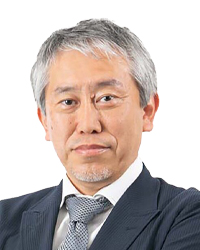The Civil Code is the fundamental legislation governing real estate in Japan, which separates the ownership of land and buildings. An owner has the right to use, obtain profit from and dispose of real property. The Act on Building Unit Ownership provides for unit ownership of buildings, such as apartments and condominiums that are structurally divided with multiple owners.
A trust is also commonly used to hold real property where a trustee becomes a legal owner and the substantial owner holds beneficial interests, mainly due to the tax benefit. It is possible for foreign entities to directly own land and buildings in Japan or hold trust-beneficial interests. However, foreign entities tend not to purchase real property on their own account, but establish a vehicle to do so due to tax issues, including corporate and withholding taxes.
Leasing rights are common and governed by the code and the act, which provide lease rights holders with legal protection to some extent. The Real Estate Registration Law provides procedures for registering the ownership of properties, including a real estate registration system under which ownership, rights in relation to property use, and security interests are recorded.
TYPES OF PROPRIETARY INTERESTS

Partner
Nishimura & Asahi
Tokyo
Tel: +81 3 6250 6523
Email: h.niinomi@plus.nishimura.com
The Civil Code allows multiple entities or people to own a property together, which is called co-ownership (kyoyumochibun-ken). Co-owners can agree on how to use, manage and modify the property under a co-ownership agreement, with some restrictions.
The Act on Building Unit Ownership allows some parts of the property to be structurally divided, be used as a single property and be subject to unit ownership (kubunshoyu-ken) or other proprietary interest. Generally, rules stipulating the building management and common space are established in accordance with the act. It is essential to review the co-ownership agreement or other regulations if acquiring co-ownership or unit ownership.
It is also common to have a certain type of ownership called beneficial interests, mainly for tax reasons (including acquisition and registration taxes), which involves creating a trust agreement between a trustee and the property owner. The trustee holds the ownership of the property for the benefit of another person or entity.
The Civil Code also describes leasing rights (chinshaku-ken) and superficies (chijo-ken) in relation to property use. Leasing rights are the most common typ and are governed also by the Act on Land and Building Leases, which provides the lessee with legal protection. For instance, a standard leasing agreement cannot be terminated unless the lessor has justifiable grounds and gives at least six months’ notice of termination to the lessee.
Meanwhile, a fixed-term leasing agreement can be terminated without justifiable grounds (seitojiyu) on condition that the agreement satisfies certain formalities under the act. For example, before entering the agreement, the lessor shall deliver a written explanation about the specific term of the lease not to be renewed.
The act allows the leasing right to be perfected once, in respect of the building lease, the lessee obtains the possession of a building; or in respect of a land lease, the ownership of the building is registered. It is also possible to register leasing rights although it is uncommon due to the registration fee.
Creating mortgages, including “revolving mortgages”, over ownership and superficies of real estate is possible, and it is a normal practice. When a mortgage is created, it does not necessarily mean transferring possession. Parties can create mortgages by a simple agreement and registration. It should be emphasised that parties who take out a mortgage should ensure that they have disposal authority.
A mortgagee shall have the right to receive the performance of his or her claim before other obligees. If there are multiple mortgages on the same property, the priority shall follow the chronological order of their registrations. Mortgages principally cover an integral part of the subject property, except for buildings on the mortgaged land.
Mortgage enforcement can be conducted through a secured real property auction, which means exercising the security interest through an auction, or an execution against earnings from the secured real property, which means exercising security interest by allotting the earnings from the real property to the performance of the secured claim.
Exercise of a real property security interest under the Civil Execution Law shall commence only when all the designated documents have been submitted.
STRUCTURES FOR OWNERSHIP

Partner
Nishimura & Asahi
Tokyo
Tel: +81 3 6250 6460
Email: k.hara@plus.nishimura.com
Although it is possible for foreign entities to directly own land and buildings in Japan, it is more common for them to do so through a Japanese juridical entity such as a kabushiki-kaisha (KK) or a godo-kaisha (GK) incorporated under the Companies Act. KK is often translated as stock company, while GK is normally interpreted as a Japanese limited liability company.
In the real-estate financial market, it is common to use a GK with the tokumei-kumiai (TK) agreement, which is incorporated under the Commercial Code, or a tokutei-mokuteki-kaisha (TMK), which is incorporated under the Act on the Securitisation of Assets to avoid double taxation.
There are some factors to determine which structure is appropriate, including regulations (different regulations apply to the scheme depending on the type of special-purpose company and the type of company assets), necessity of a clear tax opinion, and management cost (the cost using the TMK structure would be higher). TK agreement allows for the avoidance of double taxation, but it is not clearly prescribed in Japanese law and a legal opinion with respect to that point is difficult to provide.
A GK is more flexible and simpler in terms of governance, as it can be established solely with one entity as a member, appointing one individual as a managing officer (shokumu-shikkousha). A ippan shadan hojin (ISH) or general corporation is commonly used to achieve governance neutrality and bankruptcy remoteness as the officers cannot be changed or be appointed by the shareholders once they are appointed under the articles of association, making the company free from the shareholder’s intervention.
Unlike the GK-TK structure, the requirements for special tax treatment of a TMK are clearly prescribed by the tax laws. Therefore, by fulfilling those requirements, an investor can avoid double taxation. A TMK can issue two types of equity, including specified shares that are similar to ordinary shares in a KK and preferred shares.
The voting rights of a preferred shareholder are limited. The Act on the Securitisation of Assets requires TMK to have one director and a statutory auditor from a governance viewpoint, and the preparation of a specific asset liquidation plan, which must be submitted to the authority, and to report if there is any change to the plan.
LEGAL DUE DILIGENCE

Partner
Nishimura & Asahi
Tokyo
Tel: +81 3 6250 6632
Email: na.yamamoto@plus.nishimura.com
Any transfer or creation of real property ownership must not be asserted against third parties unless they are registered in accordance with the Real Estate Registration Act. Once an application for registration regarding a new transaction is submitted, the certificate of registered property cannot be issued until the application process is completed. Therefore, it is common to review the registration of the target property before the transaction.
The application should be submitted after confirming that the registration does not indicate any inconsistency. There could be a minor risk that a court might find that a third party, who is not on the registration, is the true legal owner or holds a proprietary interest. Although such a risk is low due to the stringent requirements, legal due diligence is basically regarded as a sufficient method to mitigate the risk. Therefore, title insurance is uncommon in Japan.
Legal counsel normally would not conduct on-site due diligence, so the issues requiring physical due diligence would not be covered, including matters related to regional regulations, architecture or construction, environment, city planning or zone use, and actual boundary. Appraisal, engineering, and property reports would be provided to cover the above-mentioned matters.
In practice, legal counsel generally reviews important agreements, reports, and documents or certificates regarding the subject property to check whether there is any material issue that would prohibit the purchaser from acquiring the property.
The scope of due diligence includes rights to the target property (whether the seller is the owner, the perfection is completed, or any security interests exist), tenant and lease agreement, other related agreements regarding the property (including property management agreement), regulations applying to the property, environmental issues, boundaries, lawsuits, etc.
Although the scope may differ depending on the cost and characteristics of the target property, it is essential to review the certificate of registered matters. Where any issue is found in the reports, legal counsel investigates in detail from a legal perspective.
Due diligence would generally proceed with the following steps, and it would take one to two months before the final report is provided. It is necessary to determine the scope of the legal due diligence. The information package regarding the target property would be provided to the potential buyer subject to the non-disclosure agreement or letter of intent. In some cases, a question and answer session would be scheduled between the seller and the potential buyer. The potential buyer would decide whether to proceed with the transaction based on the outcome of the legal due diligence.

NISHIMURA & ASAHI (GAIKOKUHO KYODO JIGYO)
Otemon Tower, 1-1-2 Otemachi, Chiyoda-ku
Tokyo 100-8124, Japan
Tel: +81 3 6250 6200
Email: info@nishimura.com






























